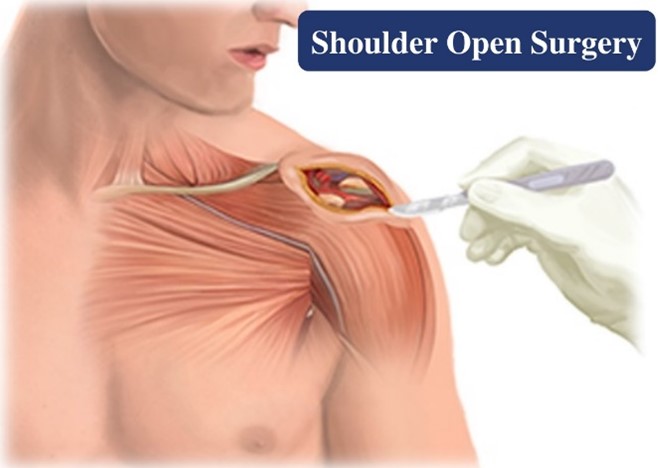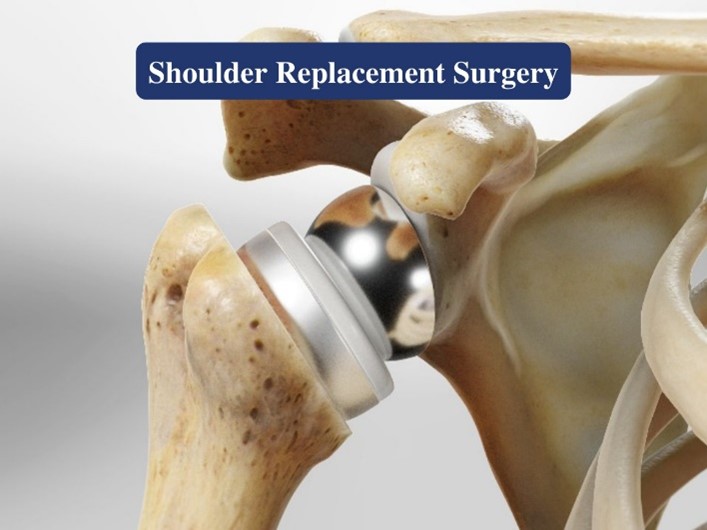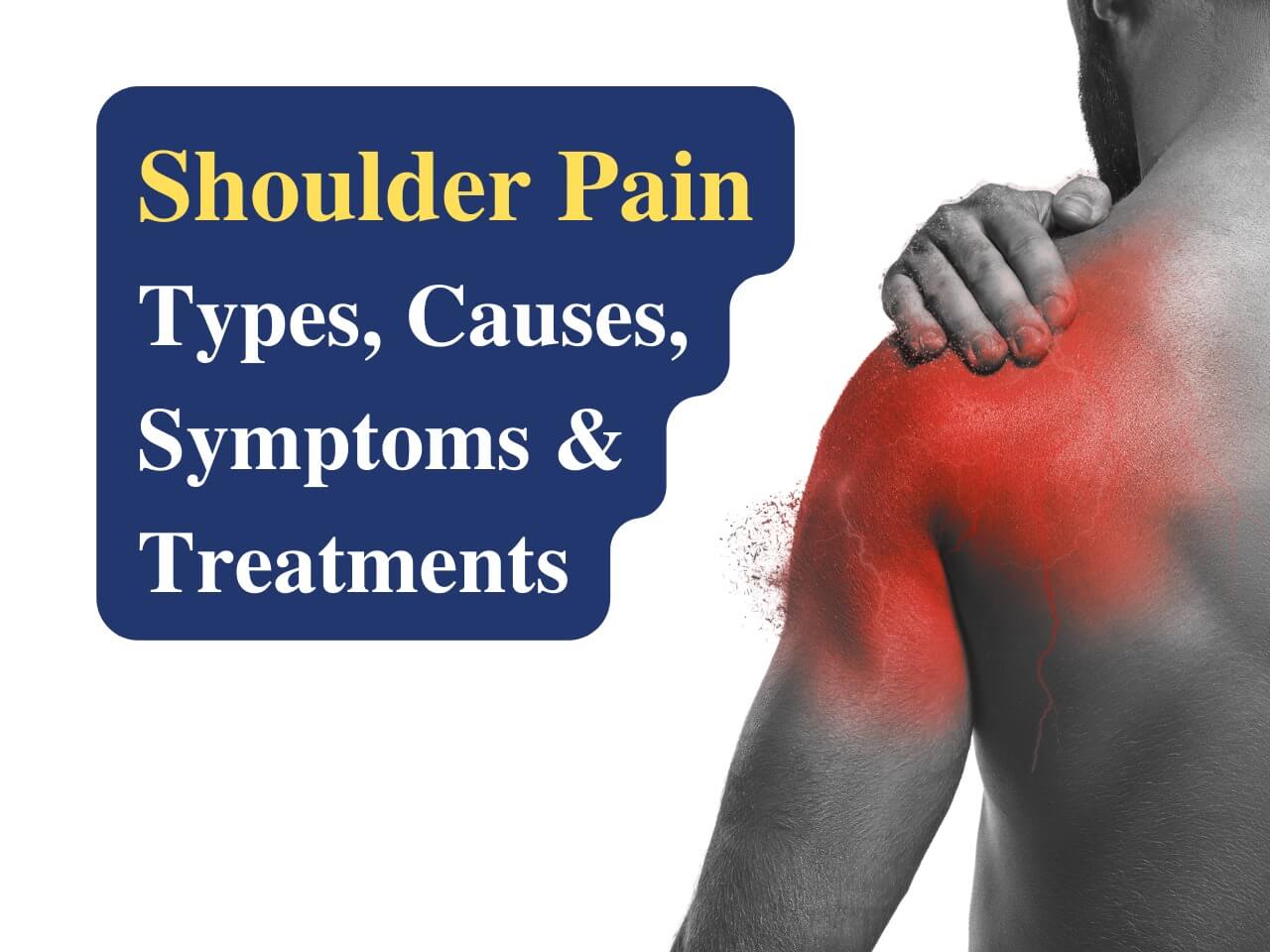Understanding Shoulder Pain: Types, Causes & Treatment Options
Shoulder pain is a common issue that can significantly impact your daily life, limiting your ability to perform routine tasks and affecting your overall quality of life. Whether it’s a sharp pain from a recent injury or chronic discomfort that has developed over time, understanding the root cause of your shoulder pain is crucial for effective treatment.
Dr. Reet Mukhopadhyay, a renowned Shoulder Replacement Surgeon in Kolkata, offers specialized care for those suffering from shoulder pain, helping patients regain their mobility and lead pain-free lives.

Types of Shoulder Pain
Shoulder pain can arise from a variety of conditions, each with its own unique characteristics.
Some of the most common types of shoulder pain include:
- Rotator cuff tears: This occurs when the tendons that connect the rotator cuff muscles to the shoulder bone become torn.
- Bursitis: Inflammation of the bursa, a fluid-filled sac that cushions the shoulder joint.
- Tendinitis: Inflammation of the tendons in the shoulder.
- Frozen shoulder (adhesive capsulitis): A condition characterized by stiffness and pain in the shoulder joint.
- Arthritis: Both osteoarthritis and rheumatoid arthritis can cause shoulder pain.
- Fractures: A broken bone in the shoulder can lead to severe pain.
- Dislocations: When the shoulder joint comes out of its socket.
Causes of Shoulder Pain
The causes of shoulder pain can vary widely, but some common factors include:
- Overuse or repetitive motions: Engaging in activities that involve repetitive arm movements can put stress on the shoulder joint.
- Injury or trauma: A sudden impact or fall can cause damage to the shoulder.
- Aging and wear and tear: As we age, the tissues in our shoulders can become worn and damaged.
- Underlying medical conditions: Conditions such as diabetes and thyroid disease can contribute to shoulder pain.
- Poor posture or biomechanics: Improper posture or biomechanics can place undue stress on the shoulder.
Causes of Shoulder Pain in Females
Women may experience shoulder pain due to factors such as:
- Hormonal changes: Menopause can lead to changes in bone density and muscle strength, increasing the risk of shoulder problems.
- Pregnancy and childbirth: The physical demands of pregnancy and childbirth can strain the shoulder joints.
- Breast-related issues: Conditions like breast cancer or breast implants can sometimes cause shoulder pain.
Causes of Shoulder Pain in Males
Men may be more prone to shoulder pain due to:
- Occupational factors: Jobs that involve heavy lifting or repetitive arm movements can increase the risk of shoulder injury.
- Sports-related injuries: Participating in sports that put stress on the shoulder, such as baseball or tennis, can lead to pain.
Symptoms of Shoulder Pain
Shoulder pain can manifest in various ways, depending on the underlying cause.
Common symptoms include:
- Pain and tenderness in the shoulder joint
- Limited range of motion
- Weakness in the arm and shoulder
- Swelling in the shoulder area
- Clicking or popping sounds in the shoulder
- Numbness or tingling in the arm or hand
Diagnosis of Shoulder Pain
A thorough evaluation is necessary to accurately diagnose the cause of shoulder pain.
This typically involves:
- Medical history: A detailed review of your symptoms, past injuries, and medical conditions.
- Physical examination: An assessment of your shoulder’s range of motion, strength, and tenderness.
- Imaging studies: X-rays, MRIs, or ultrasounds may be used to visualize the shoulder joint and identify any abnormalities.
- Blood tests: Blood tests may be ordered to rule out underlying medical conditions that could be contributing to shoulder pain.
Treatment Options for Shoulder Pain
The appropriate treatment for shoulder pain will depend on the underlying cause. It may involve a combination of the following approaches:
Non-surgical Treatment
- Rest and ice: Avoiding activities that aggravate the shoulder and applying ice to reduce inflammation.
- Over-the-counter pain relievers: Medications like ibuprofen or acetaminophen can help manage pain.
- Physical therapy: Exercises and stretches designed to improve shoulder mobility and strength.
- Corticosteroid injections: Injections of corticosteroids can help reduce inflammation and pain.
Surgical Treatment
1- Arthroscopic surgery:
A minimally invasive procedure that uses small incisions and a camera to repair damaged tissues.

2- Open surgery:
A more traditional surgical approach that involves larger incisions.

3- Shoulder replacement surgery:
Replacing the damaged shoulder joint with an artificial implant.

Living with Shoulder Pain: Management and Prevention
Managing and preventing shoulder pain is essential for maintaining a healthy, active lifestyle.
Home Care Tips
Ice and Heat Therapy:
Applying ice packs can reduce inflammation and numb the area, providing pain relief. Heat therapy can help relax the muscles and improve blood flow, aiding in the healing process.
Ergonomic Adjustments:
Making ergonomic adjustments in your workspace or daily activities can reduce strain on your shoulder. This includes adjusting the height of your chair, using supportive pillows, and ensuring proper posture during activities.
Lifestyle Modifications:
Avoiding activities that exacerbate your shoulder pain is crucial. This may involve modifying your exercise routine, avoiding heavy lifting, and being mindful of your movements.
Long-Term Prevention
Regular Exercise:
Engaging in regular exercises that strengthen the shoulder muscles and improve flexibility can prevent shoulder pain. Focus on low-impact exercises that do not strain the shoulder.
Healthy Weight:
Maintaining a healthy weight reduces the strain on your joints, including the shoulders. This can help prevent the onset of conditions like arthritis.
Posture Awareness:
Good posture is key to preventing shoulder pain. Be mindful of your posture when sitting, standing, and performing daily activities to avoid unnecessary strain on your shoulders.
Shoulder Replacement Surgery
Shoulder replacement surgery is considered when non-surgical treatments have failed to provide relief or when the shoulder joint is severely damaged. The procedure involves removing the damaged bone and cartilage and replacing it with an artificial joint.
Shoulder Replacement Surgery in Kolkata
Kolkata is home to many skilled shoulder replacement surgeons, including Dr. Reet Mukhopadhyay. Dr. Mukhopadhyay brings extensive experience and expertise in shoulder replacement surgery, offering patients access to the latest techniques and technologies.
The facilities in Kolkata are well-equipped to provide comprehensive care for shoulder replacement patients, ensuring a comfortable and successful recovery.
Conclusion
Shoulder pain can significantly affect your daily life, but with the right understanding and treatment, you can manage and overcome this condition. Whether it’s identifying the type and cause of your pain, recognizing the symptoms, or exploring treatment options, it’s essential to take proactive steps toward recovery.
For those experiencing persistent or severe shoulder pain, consulting with a specialist like Dr. Reet Mukhopadhyay, a leading Shoulder Replacement Surgeon in Kolkata, is crucial for receiving accurate diagnosis and effective treatment.
Don’t let shoulder pain hold you back—schedule a consultation today to explore your treatment options and take the first step towards a pain-free life.


